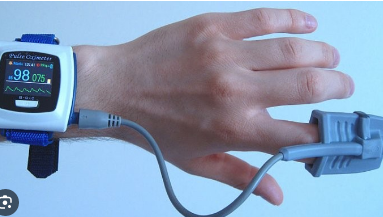
Wearable medical devices are revolutionizing the way we treat ourselves through making healthcare more convenient, active, and personalized. These devices include everything from fitness trackers and advanced health monitors are specifically designed to offer users live information on different aspects of their health, which allows early detection and management of medical conditions.
What Are Wearable Medical Devices?
Wearable medical devices are electronic gadgets that users wear on their body to monitor and gather health-related information. These devices can be worn on the wrist, worn as a patch, or even as clothes. They come with sensors that track vital parameters such as heart rate, blood pressure as well as glucose levels and many more.
Types of Wearable Medical Devices
Fitness Trackers: These are possibly the most well-known type of wearable devices. They track the heart rate, physical activity, and sleep patterns. Examples of this include Fitbit or Garmin devices, which help users set goals for fitness and monitor their progress.
Smartwatches: Beyond timekeeping, smartwatches like Apple Watch and Samsung Galaxy Watch offer advanced health monitoring features. Apple Watch and Samsung Galaxy Watch have advanced health monitoring features. They are able to monitor ECG levels, blood oxygen levels, and even detect heart rhythms that are irregular.
Medical-Grade Monitors They are the most sophisticated devices for managing chronic illnesses. They include Continuous glucose monitors (CGMs) for diabetes management along with wearable pressure gauges. These devices give accurate readings, and are often able to transmit data directly to healthcare providers.
Wearable ECG Monitors: Devices such as the KardiaMobile are designed to record electrocardiograms (ECGs) and identify arrhythmias. They are especially beneficial for those suffering from heart disease or who are susceptible to heart disease.
Benefits of Wearable Medical Devices
Early detection: Wearable devices can aid in identifying potential health issues before they become serious. For instance, irregular heart rates detected by smartwatches can make users seek medical advice before they become serious.
Personalized Health Insights for Health: These devices give users personal data that could be utilized to create lifestyle modifications. For instance, fitness trackers can recommend adjustments to workout routines according to activity levels.
Improved Patient Engagement offering continuous health monitoring, wearable devices help users to play an active part in managing their health. This could lead to better adhering to treatment plans as well as better lifestyle choices.
Comfort: Wearable gadgets give the convenience of continuous health monitoring without the necessity for regular doctor visits. This is particularly beneficial for people with chronic ailments that require frequent monitoring.
Challenges and Considerations
Despite their advantages, wearable medical devices also face challenges. Concerns like accuracy of data, privacy concerns, and the necessity for periodic calibration should be taken care of. In addition, although these devices may provide useful information, they’re in no way a replacement for expert medical advice and should only be used in conjunction with regular checks.
In conclusion Wearable Medical Devicesan important advancement in personal health management. They offer a range of functions that enhance early detection, provide personalized insights, and improve patient engagement. As technology continues to evolve, these devices are likely to become even more integral to our healthcare routines.


